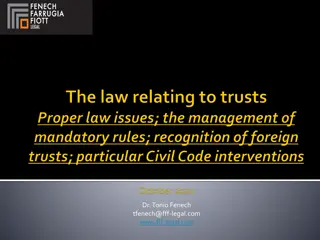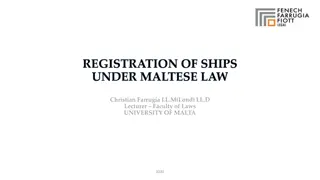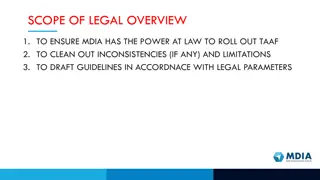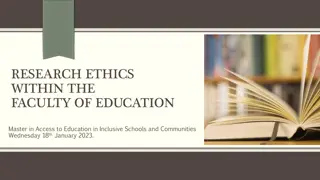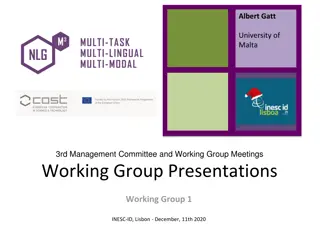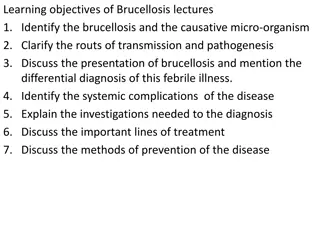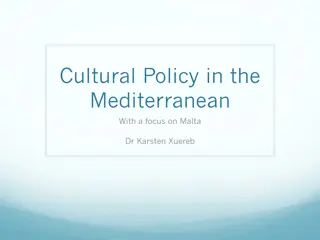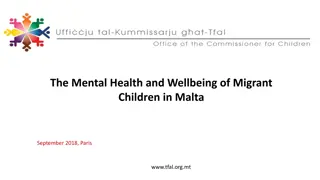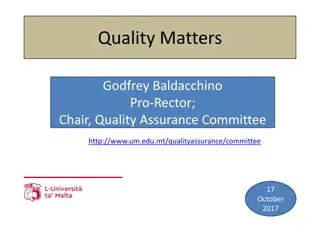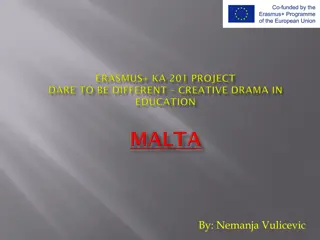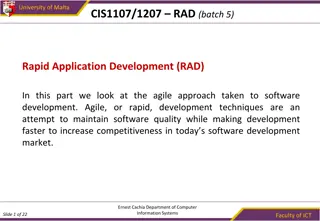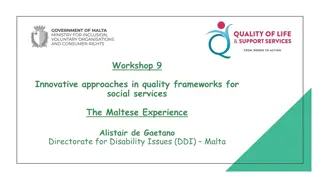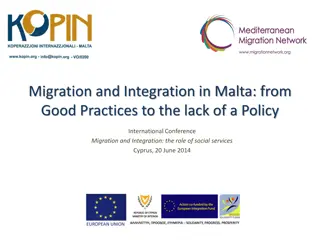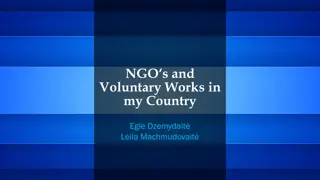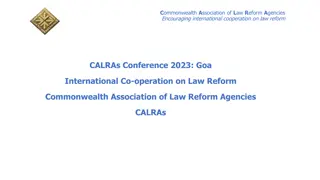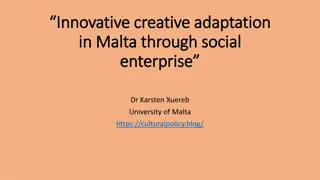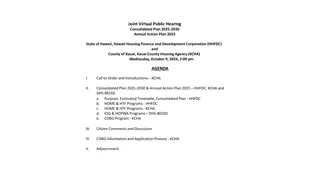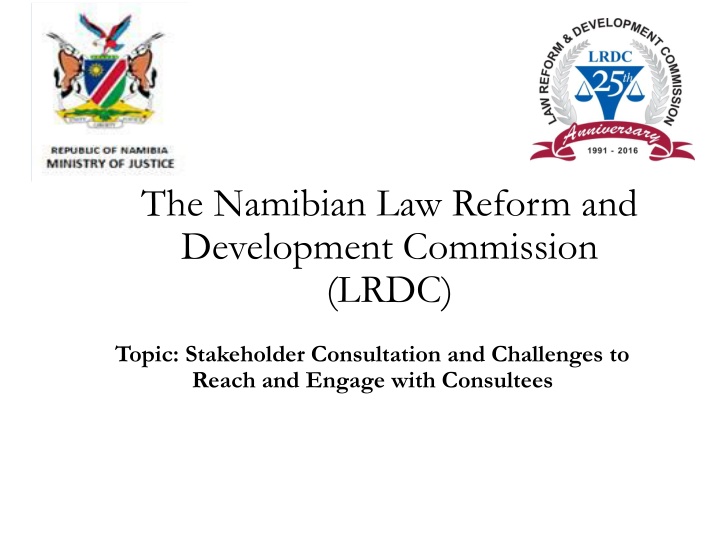
Stakeholder Consultation Challenges in Namibian Law Reform
Explore the Namibian Law Reform and Development Commission (LRDC) and the challenges faced in reaching and engaging stakeholders for consultations. Discover the mission, mandate, and powers of the LRDC, along with ways to mitigate these challenges and provide a voice to all parties involved.
Download Presentation

Please find below an Image/Link to download the presentation.
The content on the website is provided AS IS for your information and personal use only. It may not be sold, licensed, or shared on other websites without obtaining consent from the author. If you encounter any issues during the download, it is possible that the publisher has removed the file from their server.
You are allowed to download the files provided on this website for personal or commercial use, subject to the condition that they are used lawfully. All files are the property of their respective owners.
The content on the website is provided AS IS for your information and personal use only. It may not be sold, licensed, or shared on other websites without obtaining consent from the author.
E N D
Presentation Transcript
The Namibian Law Reform and Development Commission (LRDC) Topic: Stakeholder Consultation and Challenges to Reach and Engage with Consultees
OUTLINE 1. Facts about Namibia; LRDC Mission ; About the LRDC of the Republic of Namibia; Mandate of the LRDC- section 6 of the enabling statute, 1991; Powers of the LRDC- section 7 of the enabling statute, 1991; LRDC Law Making Process; and Recent Programme of the LRDC INTRODUCTION 2. IMPORTANCE OF STAKEHOLDER CONSULTATIONS 3. CHALLENGES OF REACHING STAKEHOLDERS 4. MITIGATING THE CHALLENGES AND PROVIDING A VOICE TO THE UNHEARD 5. STAKEHOLDER ENGAGEMENT PLAN
FACTS ABOUT NAMIBIA Location Population Economy Structure of the Namibian Government/State Membership to Regional and International Bodies (ALRAESA AND CALRA) Main Attractions
LRDC MISSION REVIEWING, REFORMING AND DEVELOPING NAMIBIA S LEGAL LANDSCAPE
ABOUT THE LRDC Creature of Statute; Enabling Statute, LRDC Act No. 29 of 1991; Line Minister: Minister of Justice; Chairperson appointed by the President after consultation with the Minister ( 5-year term)- is ranked at the level of a High Court Judge; Commissioners drawn from: Ombudsman( ex officio), Law Society of Namibia, Faculty of Law, University of Namibia, Namibia Law Association; Such other persons as the President deems necessary.
MANDATE OF THE LRDC SECTION 6 OF ENABLING STATUTE, 1991 Core mandate: is to examine existing legislation, undertake research both domestically and in comparable jurisdictions and to make recommendations for the review, reform and development of such laws if and when necessary; Repeal of obsolete and unnecessary enactments; Consolidate or codify any branch of law with common and statutory law; Harmonize customary law with common law and statute law; Enact laws to enhance respect for human rights as enshrined in the Namibian Constitution and Ensure compliance with International Law obligations; Make law readily accessible.
POWERS OF THE LRDC -SECTION 7 OF ENABLING STATUTE Prepare and submit, for approval by the Minister of Justice, a work programme for consideration; Accept suggestions relating to its objects from any interested party and may incorporate such suggestions in its programme; May draft legislation to give effect to recommendations set out in its reports; and Submit reports to the Minister of Justice for consideration.
LRDC LAW MAKING PROCESS Project Proposal; Project Adoption (Importance of the issue, Availability of Resources, Suitability factor); Project Initiation Document; Issue Paper; Consultations on Issue Paper; Discussion/Working Paper; Drafting Bill (if any); Consultations on the Bill; Drafting Final Report with Bill (if any); Adoption of the Final Report; and Submission of Report in terms of Section 9(1).
RECENT PROGRAMME OF THE LRDC Review of Community Courts Act; Fiscal Regime for Namibia s Upstream Oil Industry; Addressing Theft of Copper Wire Through Legislative Reforms; Strengthening the Law in Order to Prevent Transfer Pricing; Review of legislation on Cannabis; Compensation Regime for Victims of Human-Wildlife Conflict; Regulation of Bank Charges; Regulation of Ascertainment of Ancestry or Progency Through Deoxyribonucleic Acid (DNA) Technology; Assessment of Legal Impediments to Industrialization in Namibia; Broadening Opportunities for Artisanal Fishing; Regulation of Possession of Dangerous Dog Breeds and; Enhancement of the Right to a Fair Trial: Trial Within a Reasonable Time.
IMPORTANCE OF STAKEHOLDER CONSULTATIONS reinforce democratic values and give people a chance to be heard; establish how other people view problems; find out what they think of the Commissions proposed solutions; alert the Commission on how the law works in practice; refine the proposals of the Commission, and build a consensus in favour of reform.
CHALLENGE OF REACHING STAKEHOLDERS Budget limitations Remote and difficult to reach locations Language barriers Lack of adequate and appropriate venues Time constraints Technological limitations Fear of stigmatisation, labelling, victimisation etc Availability of targeted stakeholders Limited avenues for consultations
MITIGATING SUCH CHALLENGES Sponsorships and partnerships with strategic, likeminded partner institutions. Plan early and in consultation with contact persons on the ground. Enhance language diversity in the institution, budget for translators, make use of local persons for translation, translate materials into various vernaculars. Book venues in time, invest in mobile equipment (Projectors, Screens, Speakers, etc) Cluster consultations, i.e. Regions, Category of Stakeholders, Utilising multiple avenues for consultation or getting input from stakeholders, Plan ahead of time. Incorporate the use of technology solutions in consultation processes, i.e. Zoom/Teams platforms, mass short messaging services (sms), radio interactive programmes. Use multiple avenues for consultation, i.e. written input, solicit inputs from representative groups, protection of identity mechanisms (Confidentiality). Engage important stakeholders from the onset, make them part of the process, i.e. Establishment of Committee s, schedule stakeholder engagements early and allow sufficient time for stakeholders to prepare themselves. Enhance institutional ability to conduct consultations through multiple avenues, i.e. in person, written inputs, virtual platforms, radio shows, e-comments on publications published on the website etc.
GIVING A VOICE TO THE UNHEARD. Inclusivity Spells Harmony, Exclusivity Spells Conflict Dr. Hage Godfried Geingob 3rd President of the Republic of Namibia Representative Stakeholder Consultations. This is an important way of taking into account the views of the broader public through their recognised political, community or social representatives. Cluster Stakeholder Consultations Clustering stakeholders with common interests allows for shared views on matters of common interest and in most cases would be representative, inclusive of those who may not be in attendance. Wide Research of Various Views on the Subject Matter The Commission must research widely and present the views from various quarters of society, that may not be in the room during discussions.
STAKEHOLDER ENGAGEMENT PLAN A clear Stakeholder Engagement Plan is important in the Research Processes The Plan should include: - The number of anticipated consultations; - Indication of the targeted stakeholders; - The method of consultation. Identification of the most efficient and effective means of consultation, suitable for the targeted stakeholders - Timelines for consultations. (Based on the most appropriate time). If you intent on having broad based consultations, always have a base/minimum number of consultees whom you will endeavour by all means to ensure they are in attendance. If you intent to conduct consultations in the regions, remote areas, ensure to involve local leadership during the preparation phase and during the actual consultations. In our case, we usually ensure that priority groups are part of our consultation processes. These groups are: 1. Youth, 2. Women, 3. Traditional Leaders.
Thank you! Thank you! Comments & Questions Comments & Questions

